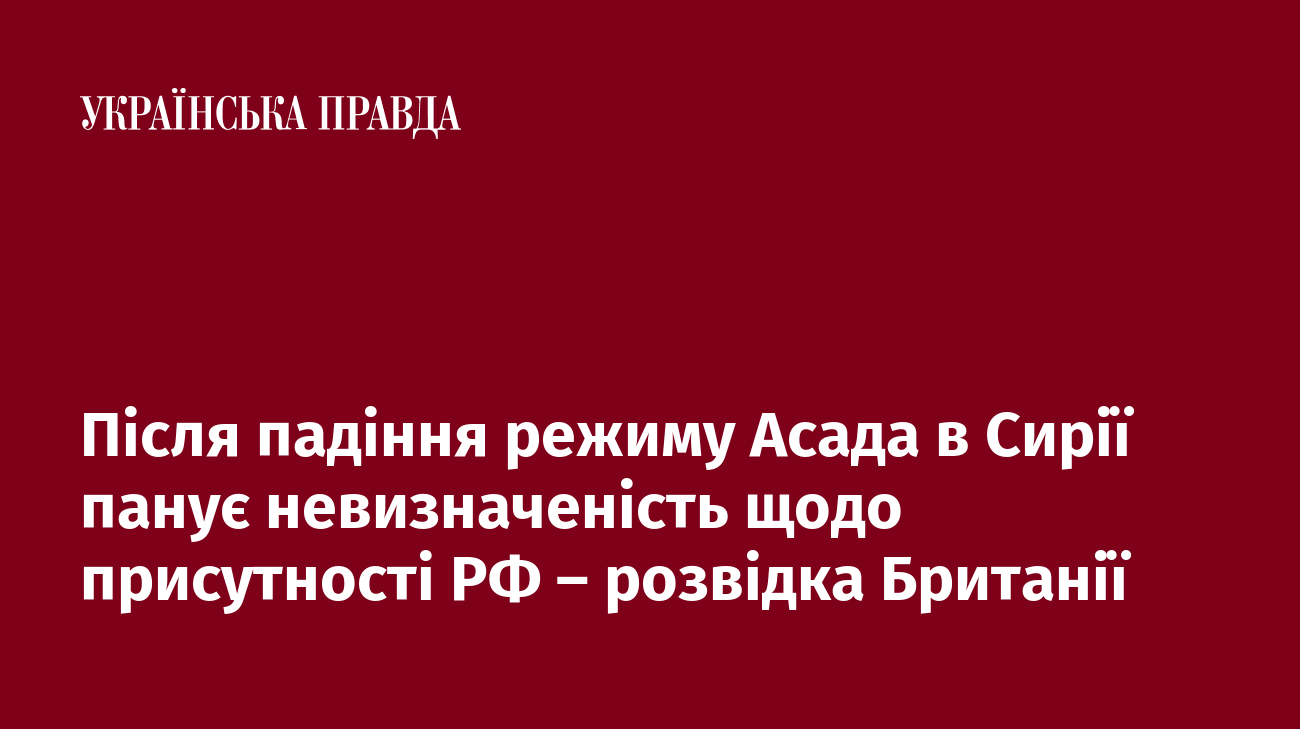“British intelligence notes that after the fall of the Assad regime in Syria, uncertainty about Russia’s future presence in the eastern Mediterranean remains high. Source: review of the British Ministry of Defense on the Russian-Ukrainian war from January 21, “European Truth” Details: As emphasized in the Ministry of Defense of Britain, after the fall of the regime of Assad, Russia’s former Syrian ally, the Russian Permanent Mediterranean Task Force does not have access to its naval base in Tartus for maintenance and logistical support.”, — write: www.pravda.com.ua
British intelligence notes that after the fall of the Assad regime in Syria, uncertainty about Russia’s future presence in the eastern Mediterranean remains high.
Source: review of the British Ministry of Defense on the Russian-Ukrainian war from January 21, “European Truth”
Details: As emphasized in the Ministry of Defense of Britain, after the fall of the Assad regime, Russia’s former Syrian ally, the Russian Permanent Mediterranean Task Force does not have access to its naval base in Tartus for maintenance and logistical support. There is no comparable alternative base for the Russian task force in the region.
The future of Russian bases in Syria remains unclear while political uncertainty reigns in the country, according to the British Ministry of Defense. However, Russia almost certainly wants to maintain its presence in the Mediterranean.
The ability to logistically support both its military and mercenaries in Africa, as well as limiting the reputational damage caused by the fall of the Assad regime, will almost certainly be priorities for the Russian government.
Meanwhile, Russia’s intentions to redeploy any forces or equipment to potential alternative locations in North Africa remain unclear.
At the same time, according to British analysts, the Russian leadership almost certainly considers the war in Ukraine to be its primary problem.
Earlier, NATO Secretary General Mark Rutte said that Russia and Iran were complicit in the crimes of ousted Syrian President Bashar al-Assad, and his fall showed that they were “unreliable partners”.
And German Defense Minister Boris Pistorius believes that the events in Syria show that countries that have a strategic partnership with Russia can rely on it only as long as they are useful to Putin.
